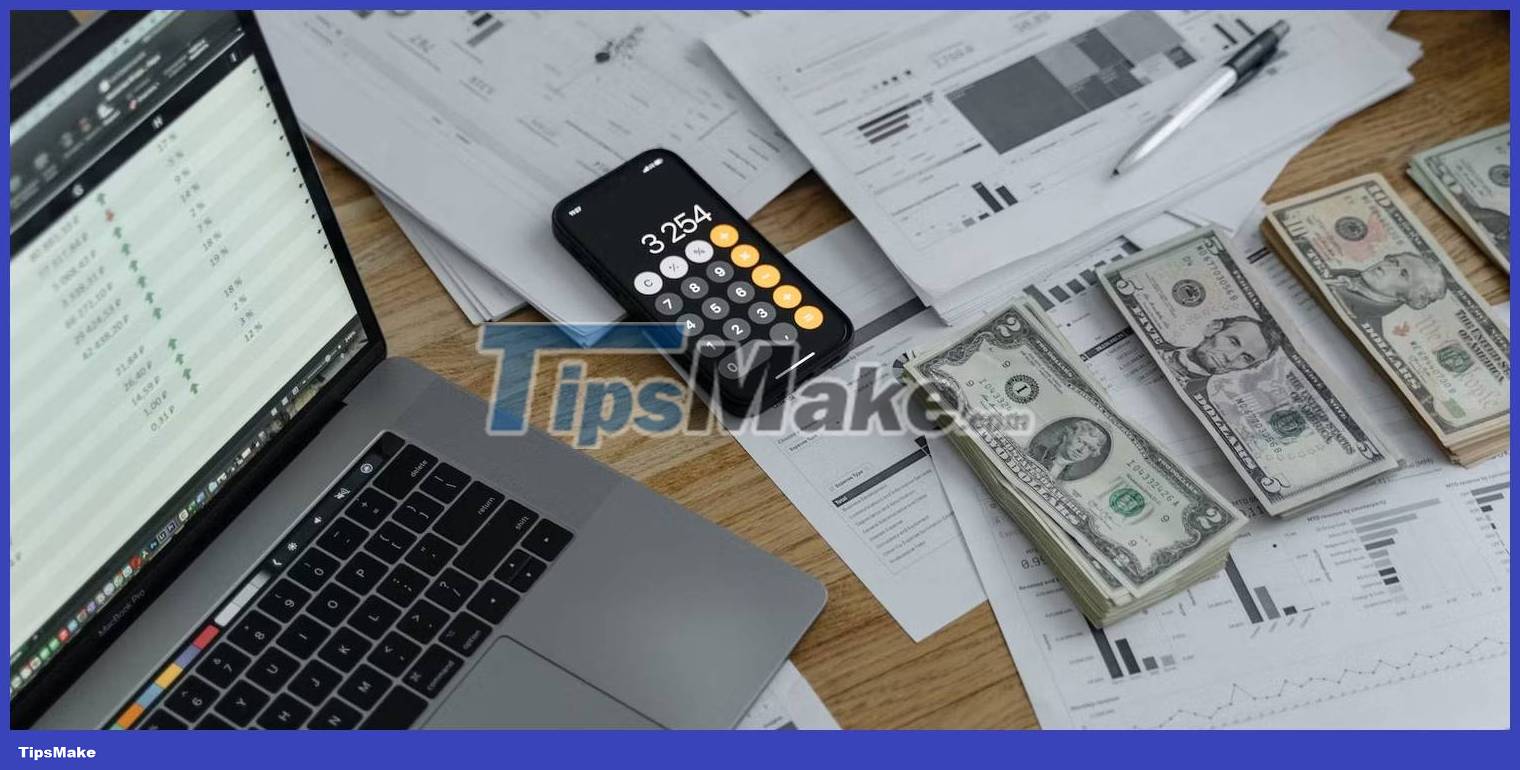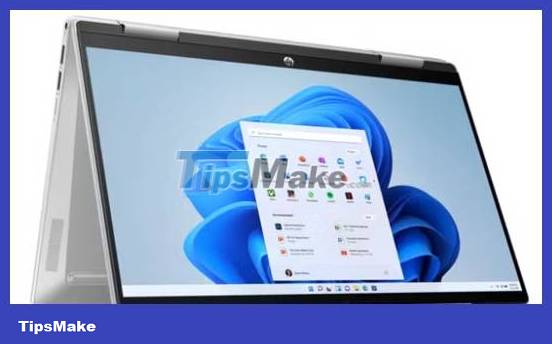6 questions to ask before buying a new laptop
If you're considering buying a new laptop, you might be wondering: Which is the best laptop on the market? What is the best brand to choose from? And what top specs to look for?
The truth is that there are so many laptop options to choose from that you can get overwhelmed to the point of not being able to make a choice. So here's a guide to the basics to consider when buying a new laptop.
1. What is your budget?

How much you're willing to spend will determine which new laptop to consider. So calculate how much you can spare and then focus on laptop options in that price range. You should aim to buy the best laptop you can afford.
Cheap, budget laptops are usually good enough for Internet browsing, file management, taking notes, and occasional movie streaming. Mid-range laptops are good enough, offer the perfect balance between price and performance, and serve as productive everyday tools for most work or school work.
Finally, there are high-end, expensive laptops aimed at professionals who demand speed and power. With these features, you'll find yourself compiling code faster, encoding videos in relatively short time, and gaming with virtually no lag or stutter.
2. What do you want to use it for?

Before making any choices, you should mull over all the essentials for your workflow. At a basic level, you should invest in a device with a nice display, a comfortable keyboard, and a precise trackpad. It makes a difference when it comes to your workflow.
If you are always on the go, sometimes without a charger, check how many hours your laptop can work on a single charge. Plus, if video calls are an integral part of your lifestyle, look for laptops with great webcam options.
And since you most likely won't be using your laptop in isolation, you also have to think about connectivity. If you're connecting to an external hard drive and monitor, make sure you have the right connection on any laptop you choose. To get started, you need at least one USB-A, USB-C, a headphone jack, and an HDMI port. Otherwise, you may have to invest in a dongle.
Many other parts make up a computer. And all of them, from the processor to the memory and storage capacity, come together to deliver a certain level of performance. You want to get the right combination of parts, look at the spec sheet, it may seem a bit confusing at first; but contains all details about CPU and RAM.
Choose the right laptop hardware
CPU is the heart of a laptop, capabilities will vary depending on the model. For example, some laptops can handle Word documents and simple web browsing, while others quickly render 4K video. MacBooks offer a simple processor choice since Apple switched to silicon chips: M1 or M2. For PC enthusiasts, Intel or AMD are the main choices. The decision wasn't easy, so we've outlined the specifics for Intel and AMD here.
- Core i3 or Ryzen 3 : For basic tasks like browsing the web and running Microsoft Office.
- Core i5 or Ryzen 5 : For everyday users, students and casual gamers.
- Core i7 or Ryzen 7 : For more serious gamers and creative professionals.
- Core i9 or Ryzen 9 : For professional users looking for more power.
RAM is essential for multitasking without lag on a laptop. The rule is simple: The more RAM the better. Start with 8GB, but if it's affordable, choose 16GB for seamless performance with multiple apps running.
Storage is a choice between HDD and SSD. SSDs, common in newer models, make moving files and launching apps faster. If cost is a concern, an HDD is a good choice. SSDs are preferred for quick access to files - essential for gamers or people in a hurry. Finally, choose the storage size. Modern laptops typically start at 256GB, which should be enough for most needs. You can increase your storage with cloud services or an external hard drive.
| Type of laptop | Processor | RAM | Memory | Screen size | Graphics | Price range | Note |
|---|---|---|---|---|---|---|---|
| Intel and AMD | |||||||
| Basic level | AMD Ryzen 5 5500U | 8GB | 256GB SSD | 13.3" | Radeon Vega 8 | $500-700 | Good response to basic tasks and light gaming. |
| Midrange | Intel Core i5-1135G7 | 16GB | 512GB SSD | 14" | Intel Iris Xe Graphics | $700-1000 | Good for productivity and moderate gaming. |
| High-class | Apple M1 Pro | 16GB | 1TB SSD | 14" | Apple M1 Pro GPU | $1000-1500 | Good for professional work and demanding gaming. |
| High-class | AMD Ryzen 9 6900HS | 32GB | 2TB SSD | 16" | AMD Radeon RX 6800M | $1500-2000 | Best for professional work and demanding gaming. |
| Apple | |||||||
| Basic level | Apple MacBook Air M2 | 8GB | 256GB SSD | 13.6" | Apple M2 GPU | $999 | Good response to basic tasks and light gaming. |
| Midrange | Apple MacBook Pro M2 | 16GB | 512GB SSD | 14" | Apple M2 Pro GPU | $1499 | Good for productivity and moderate gaming. |
| High-class | Apple MacBook Pro M2 Max | 32GB | 2TB SSD | 16" | Apple M2 Max GPU | $1999 | Best for professional work and demanding gaming. |
3. Is gaming a priority for you?

A good laptop will complete most tasks efficiently. But if you add some serious games in, it can put a strain on the capacity of a typical laptop. Additionally, certain features will make all the difference in how long you survive a first-person shooter or your immersive experience playing AAA games.
Most laptops have integrated graphics cards that are good enough for streaming movies or playing low-resolution games. But for more serious gamers, you need a laptop with a mid-range or high-end dedicated graphics card, a high refresh rate, and a great display. These things combine to deliver a great gaming experience. Finally, you might consider buying a gaming laptop instead.
4. Are portability and flexibility important to you?

Traditionally, laptops have had a clamshell mode, which is often the most convenient for typing and gaming. But depending on your work, you might prefer a laptop that converts into a tablet. These laptops have flexible hinges and often come with touch screens so you can use your laptop more comfortably and creatively.
For size, think about how often you have to move. If you're on the go, you might want a lightweight laptop that's easy to slip into your backpack and take with you on the go. Look for laptops with screen sizes between 10 and 14 inches and weigh about 1.4kg.
But if you're adding this to your work setup as a desktop replacement, don't move around a lot, or need a large screen for a great experience when gaming or video editing, the 15- to 17-inch size seems more reasonable.
5. Want a MacBook or a Windows laptop?
MacBooks excel in ecosystem integration, elegant design, and reliability. Apple's intuitive macOS operating system and efficient Apple silicon chips deliver a full work day, and the efficient processing of the M1 and M2 silicon deliver outstanding performance.
However, Windows laptops offer more budget options, specifications, and brands. Often pre-installed with the familiar Windows operating system, they offer a wider selection of software and easier component upgrades. This makes them a great choice for tinkering, customizing enthusiasts.
Whatever your orientation, make sure you have a general idea of which apps you'll use the most and confirm that they're compatible with the respective operating system.
6. How long do you plan to use your laptop for?
Think about how long you plan to use your laptop. If it's a device that will serve you for years, it's smart to invest in durable and versatile hardware that doesn't lose value and performs quickly.
This is important for two main reasons. One, so that your laptop does not become obsolete quickly. And, second, when you decide to resell or exchange the machine for a more model, you can still get about 60% of the original value. In this regard, Apple hardware often has a better resale value when compared to other brands.